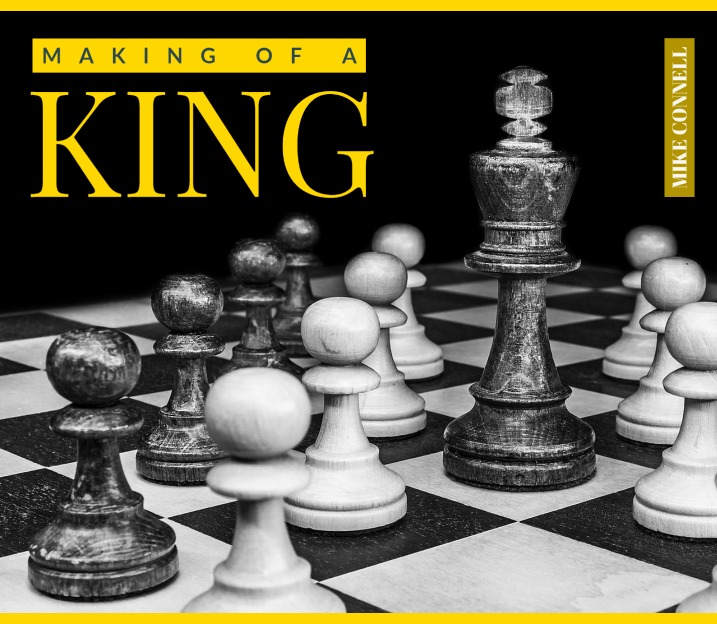 I have found David. the son of Jesse, a man after My own heart, who will do all My will.
I have found David. the son of Jesse, a man after My own heart, who will do all My will.
I will give you the sure mercies of David. Even my failures, God can turn them around, and make them a great stepping-stone to my success.
Gibeah was a place of Promotion, because of his reputation:
1) Skillful in playing
2) Mighty man of valor
3) Man of war
4) Prudent in speech
5) Handsome (well-presented)
6) The Lord is with him
There’s no use seeking greatness. Seek to know God, and develop great character, and God will promote you.
Acts 13:22 – “I have found David the son of Jesse, a man after My own heart, who will do all My will.”
How many love the story of David? We're going through the life of David, but we're not looking at all the great things he did. I want to look at the kind of man he was, because when you look at the great things people do, you mentally position them as that great person over there, but you don't always think what you could do, as a person, yourself. I want to do is to look at the heart of David, and this is what God said of him….
He was a man who was passionately concerned to discover what God is like. That's something that you and I could make our pursuit as well - to discover what God is like; to discover His heart, not just what He does. Not just the miracles, and the outward manifestations, but what is in the heart of God. What does He love, and hate? What does He desire, and delight in? You can discover those things - and David made that his pursuit.
It says: “he will do My will”. A man after the heart of God is a person who will overflow, and begin to actually do in the earth what he sees God wants done.
Acts 13:36 – ““For David, after he had served his own generation by the will of God, fell asleep, was buried with his fathers, and saw corruption”
The second thing about him… After he'd served his own generation, by the will of God, fell asleep.
We see two things about David here…
1) A passionate desire to know God, and to walk intimately in His presence. He was a heart man.
2) A passion to make a difference in the generation in which he lived.
Obviously, he encountered God in a major way, because he totally revolutionised worship, the nation, and the army. Every aspect of national life - he changed it. What a man, what a tremendous man! The dilemma is that we look at people like that and say: I'd never be like that; but actually, you can draw from the life of David, the man, what he's like, and discover things you and I can apply into our own lives.
Acts 13:34 – “… I will give you the sure mercies of David.”
God gave to David a flow of mercy - so much so, that David could quite confidently say that, even my failures, God can turn them around, and make them a great stepping-stone to my success. You find great failures in David's life, but he's endorsed as a man who walked in the mercies of God.
Psalm 23 – “…the goodness and mercy of God is going to follow me everywhere I go.”
He tapped into something - a life flow. We get a mental attitude: if I just do what's right, then God will bless me; but that's legalism! God blesses people, because He's good. Doing things that are right is your expression of knowing His goodness. David so knew His goodness, that he could be confident, that no matter where I go, or what happens, no matter how much I goof up, I can be sure of this: I will continue and have goodness around my life, unexpected blessing and favour.
If I blow it… God is with me! He's going to get me up again! What a way to walk! He made a mistake that cost 70,000 men their lives, but he still said: the goodness and mercy of God is around my life. You need a lot of mercy when you've killed 70,000 people, by mistake. How do you handle the pressure of guilt? Surely goodness and mercy will follow me all the days of my life. He knew how to tap into the heart flow of God. God is good, God is merciful; he tapped into it!
There are five cities mentioned in the life of David, and those five cities all represent a season in his life. The first was the city (or the town) of Bethlehem, and that represents the season of obscurity. No one knows who you are; you're just another face in the crowd. David was a young boy, growing up to the age of 17, and no-one knew him. He was so despised, that when a prophet came into their home, his dad wouldn't even invite him to the feast.